1. Make sure you have a focus on the top three things you want to get out of, or have the team experience during the retreat. This should be the anchor of what gets selected throughout the course of the day.
2. Consider a focus on both results and relationships. Many times retreats are heavy on the team bonding experience. That's great and what we know is that high performing teams have both strong professional bonds, AND they have a clear line of sight on the business results they want to achieve. A year end retreat can have a focus on both goals, action planning and relationship development.
3. Take if offsite - A lot of teams find it hard to justify a day out of the office AND it is critical to have everyone there 100% throughout the day. Even though it is well intentioned, it is easy for team members to get pulled out much easier when they are at the office for urgent issues. Time away (even a few blocks away) can create more of a buffer and "focus" for everyone.
4. Be crystal clear on follow- up action steps, who is responsible, and when you are going to check back in. It's all too common for action plans to get developed at a retreat and no loop back is created. It's critical to know what the next steps are, and who is going to be responsible. Take time to schedule in (and calendar in)your next series of follow up meetings. Retreats should not just be a "one and done". They should be part of your regular planning and communication process.
Retreats are a terrific investment for a team. Well designed they can help the team shore up their foundation for success.
Please download a complimentary retreat planning checklist here, or contact us to see how we can support you in either designing or running your next team organizational retreat.
With best wishes,
Jennifer
Jennifer Britton
Potentials Realized - Leadership | Teamwork | Coaching Skills Training for Leaders
Supporting Team Leaders One Conversation at a Time(TM)
(416)996-8326
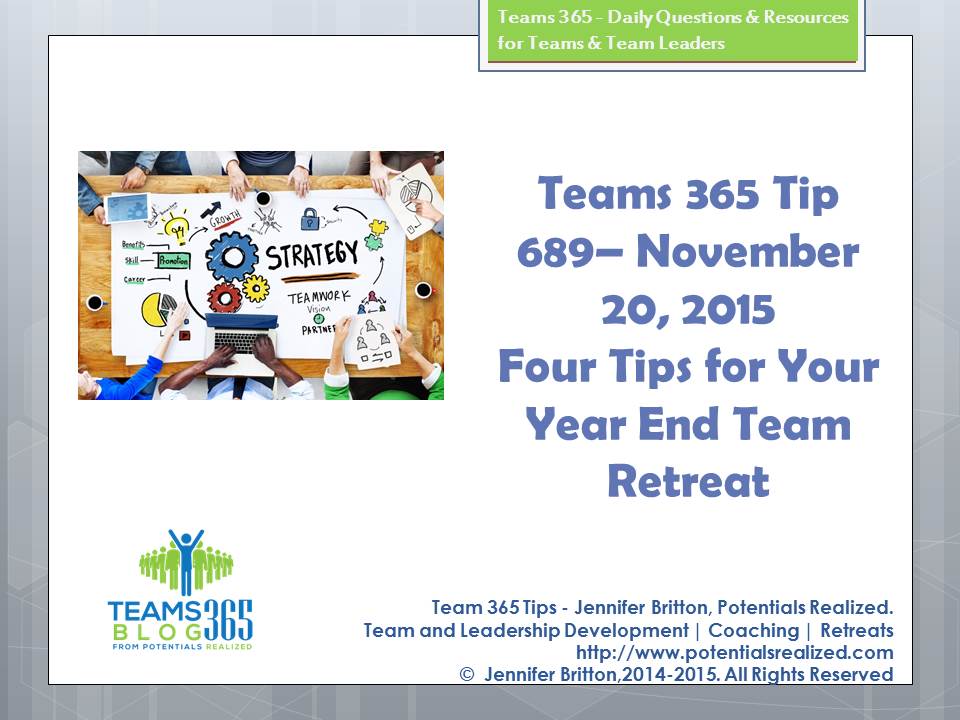
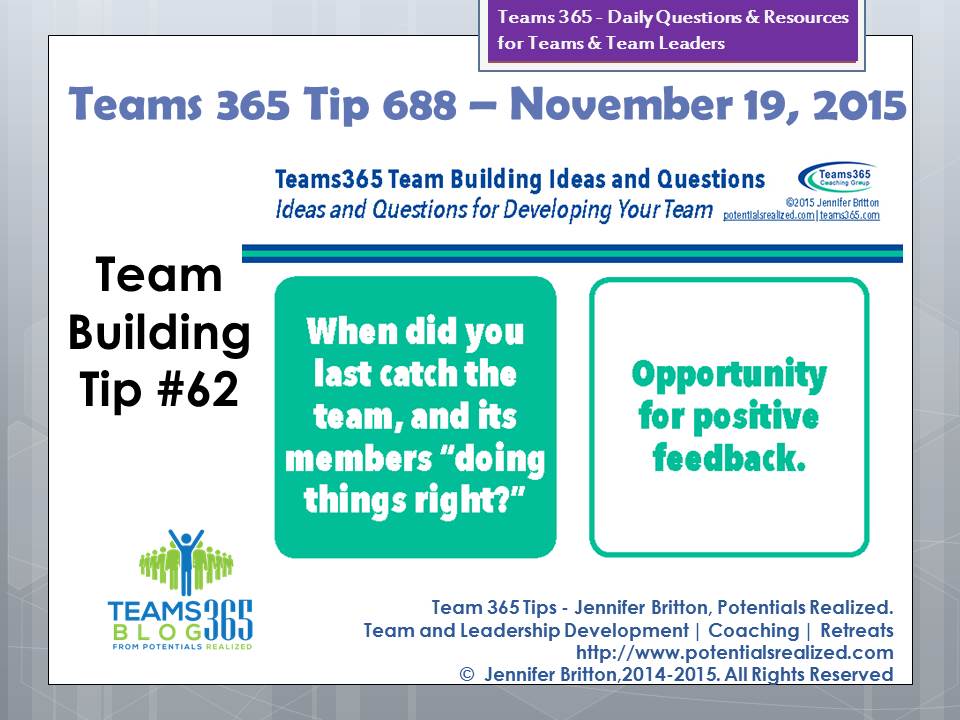
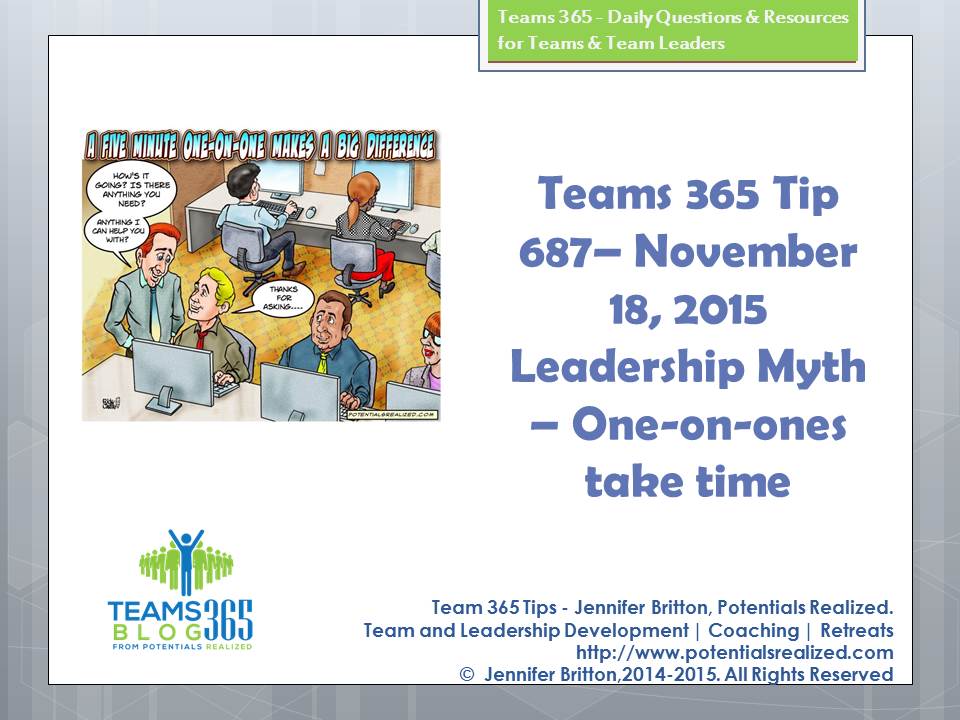
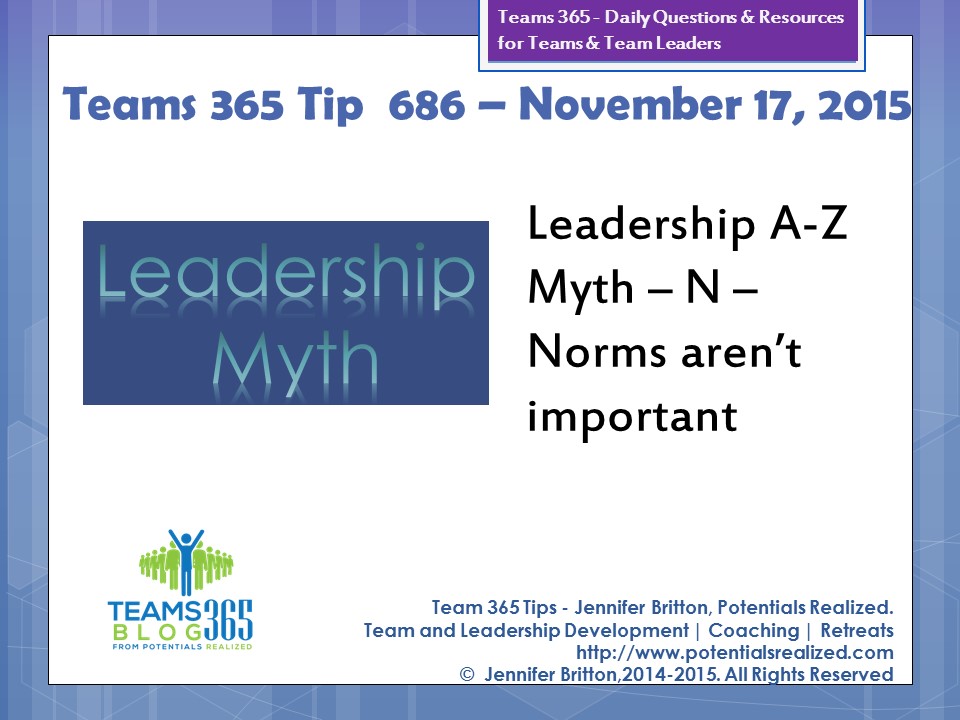
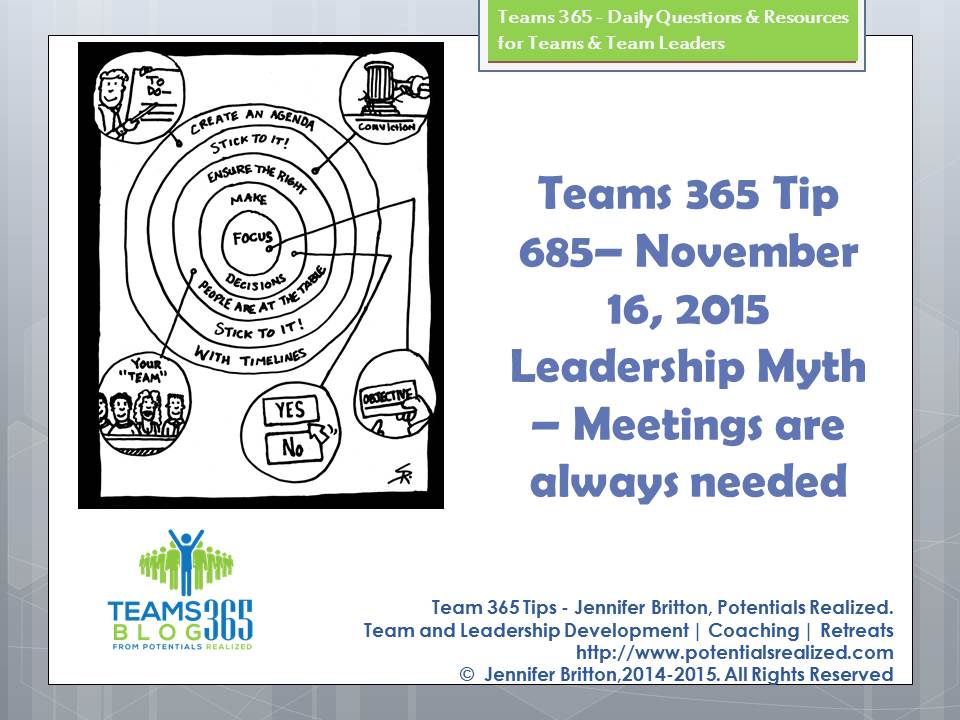
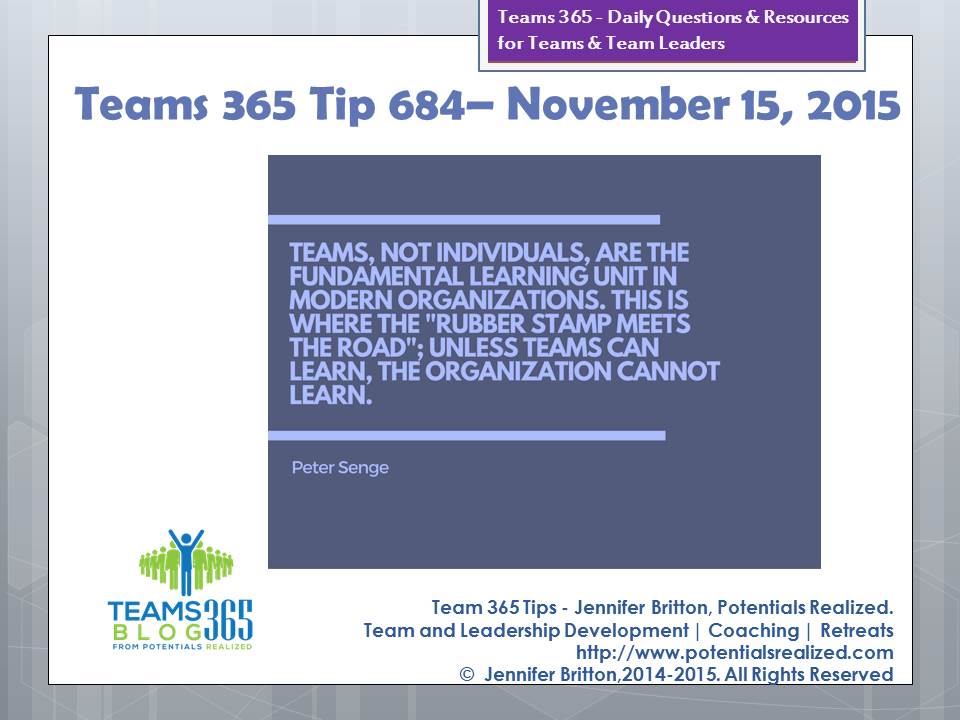
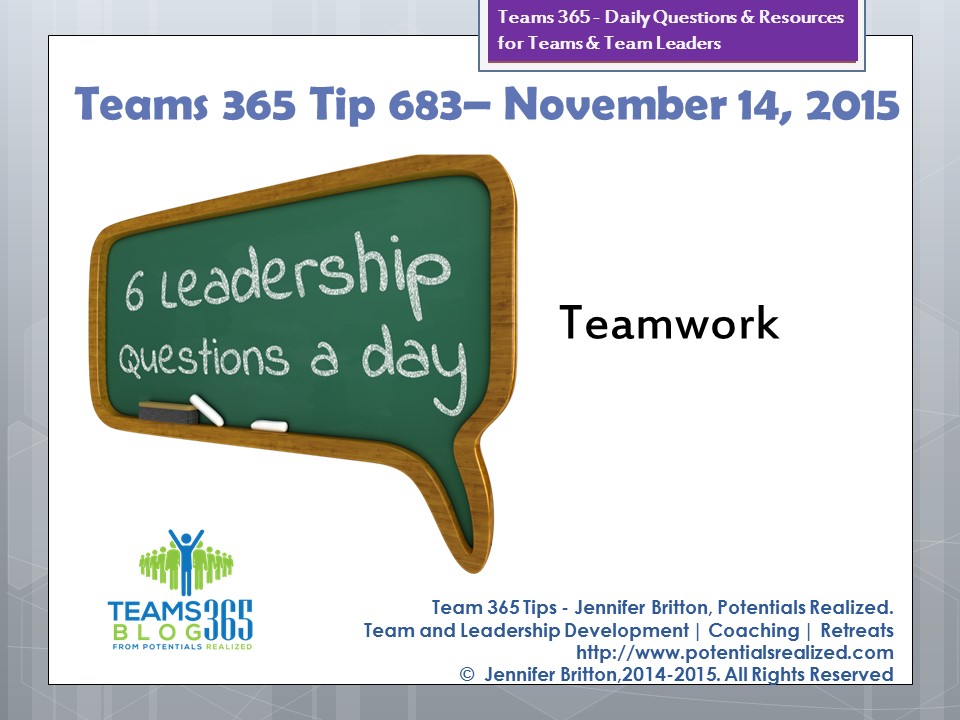
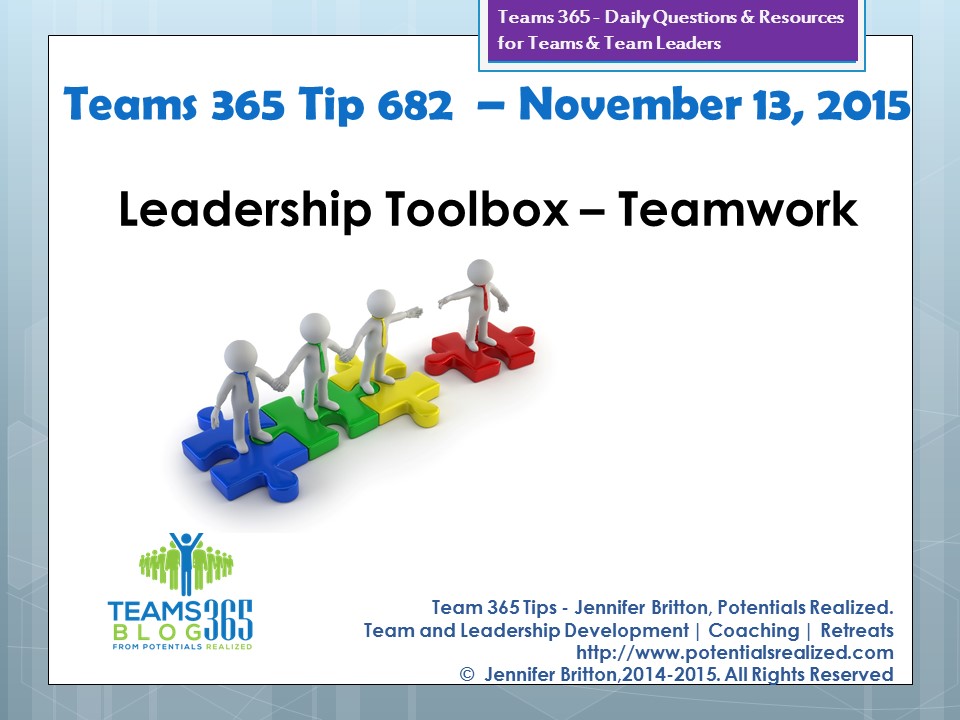
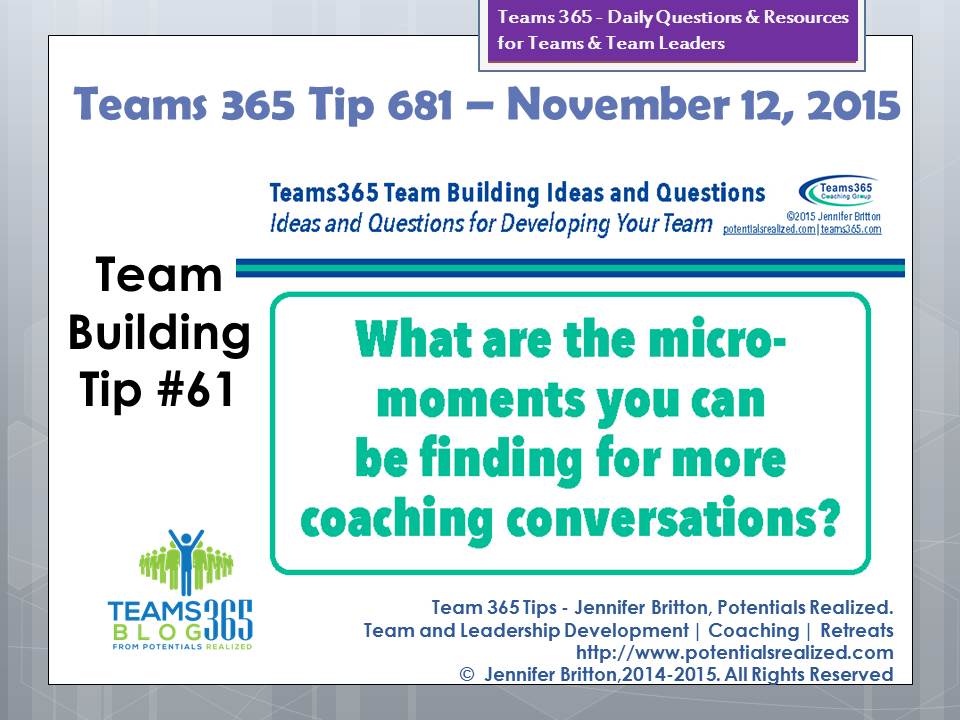
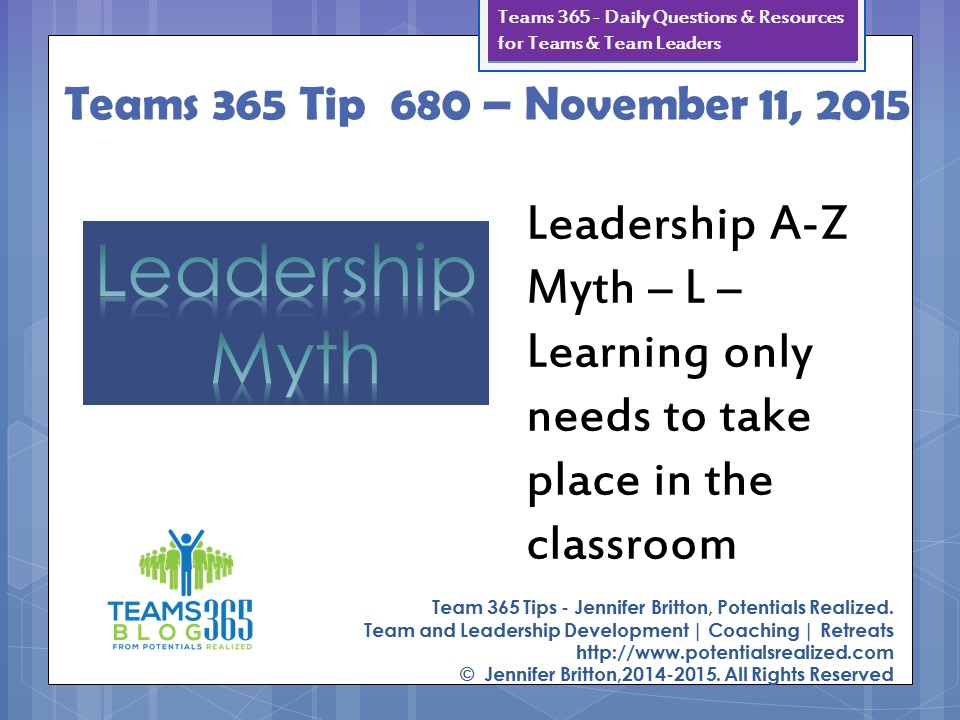
 RSS Feed
RSS Feed





